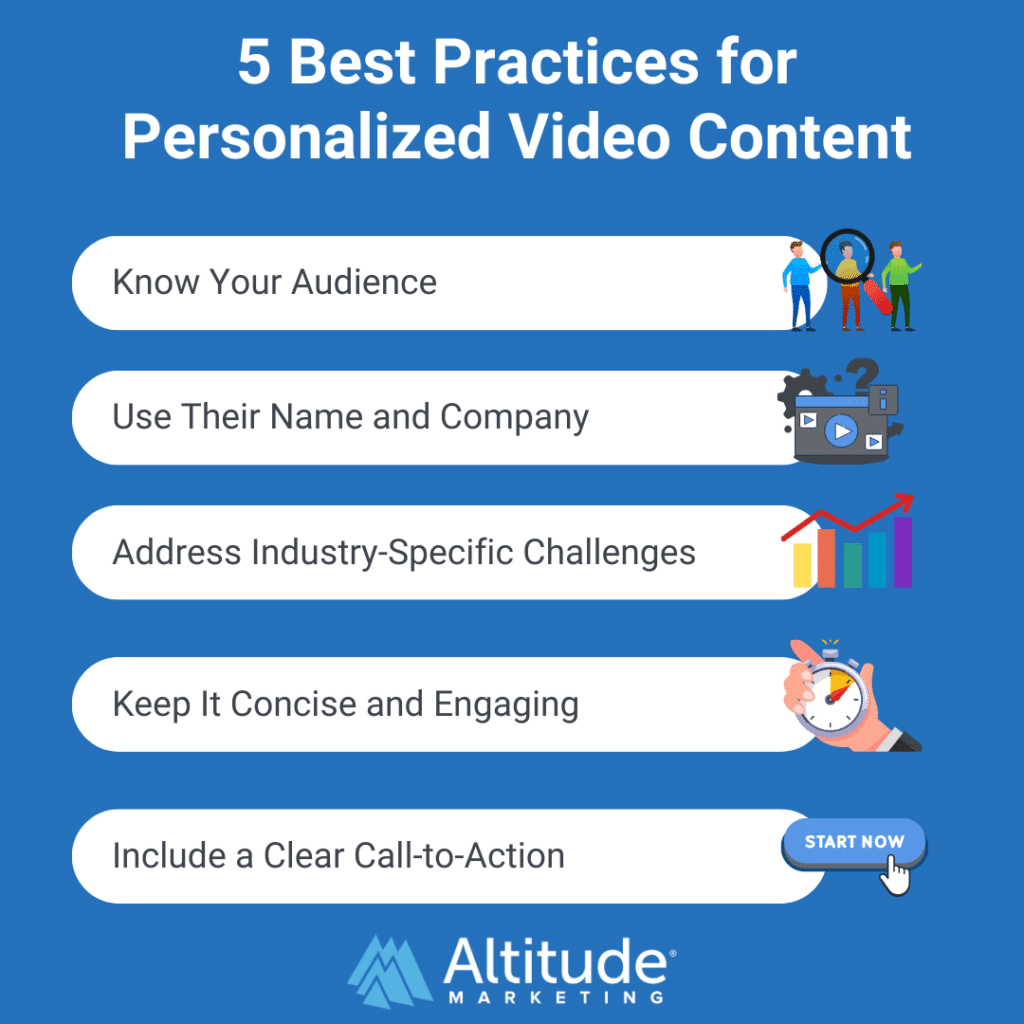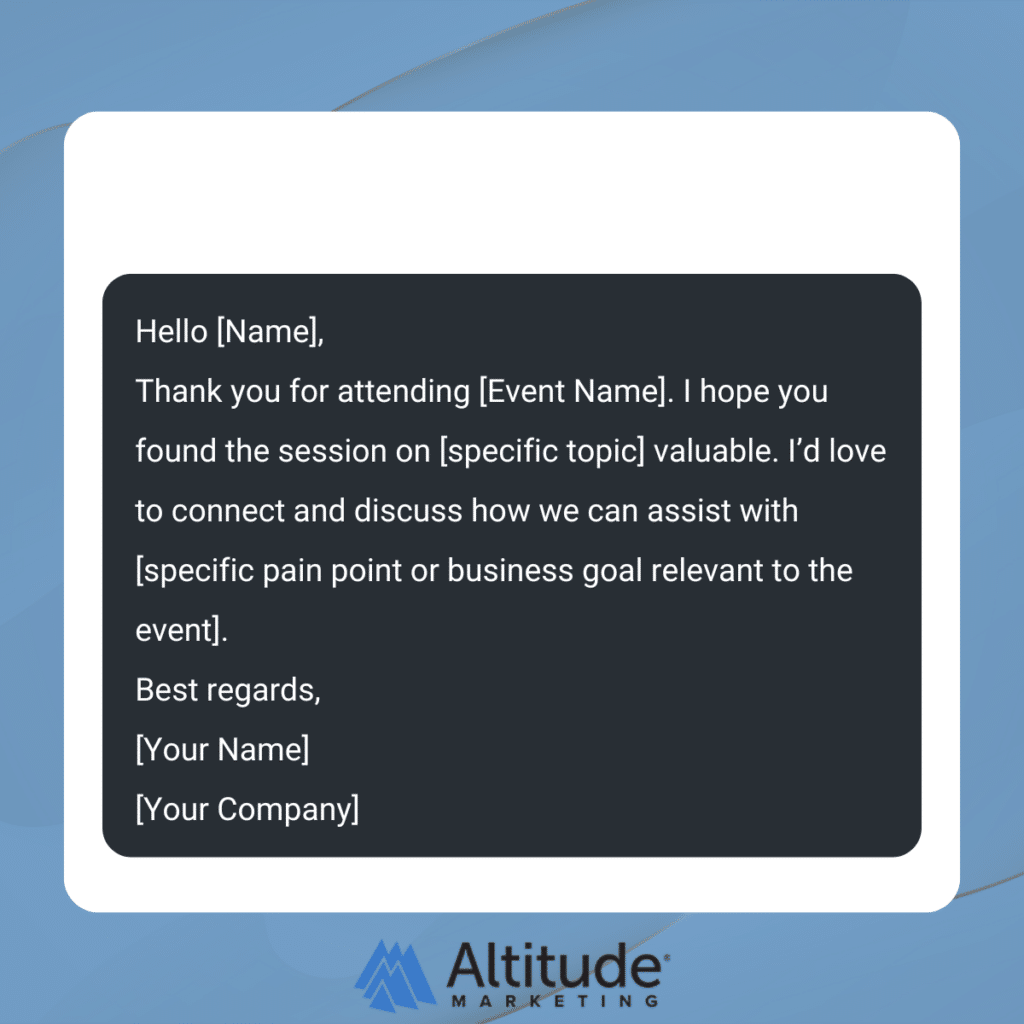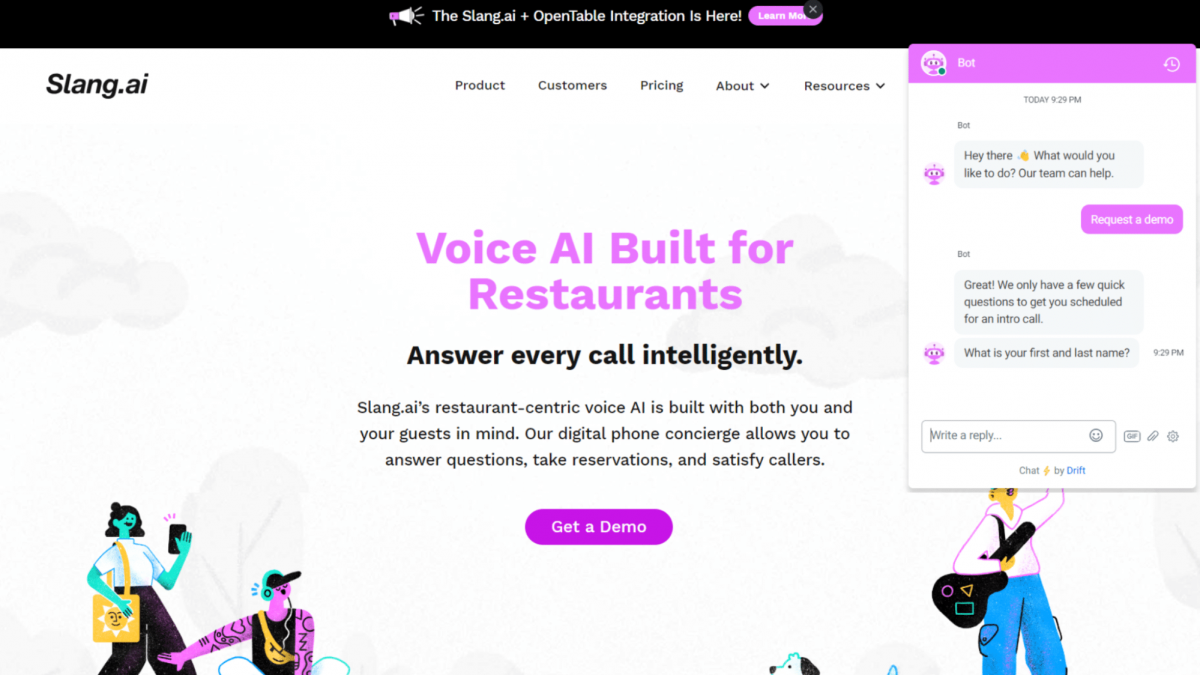Did you know that 72% of B2B buyers expect companies to provide personalized experiences? This shift in expectations highlights how personalization has become a vital part of B2B marketing. With buyers demanding more tailored solutions, businesses are moving away from generic outreach and seeking marketing strategies that address their specific needs and challenges.
Unlike B2C marketing, which often caters to individual preferences, B2B marketing requires a strategic approach that focuses on relationship building and long-term value. By using personalization to deliver relevant content and solutions, companies can create deeper connections, enhance engagement, and ultimately boost their conversion rates. Discover how personalized strategies can transform your sales. Dive into these 10 actionable tips to implement personalization in your sales cycle and boost your results.

10 Ways to Use Personalization in Your B2B Marketing Strategy
1. Personalized Email Marketing Campaigns
Personalized email marketing is a fundamental component of any B2B marketing strategy. Email remains one of the most effective communication channels for engaging potential clients, nurturing existing leads, and driving conversions.
Segmented Email Campaigns
One of the simplest but most effective personalization strategies is segmenting your email lists. By dividing your contacts based on factors like industry, company size, previous interactions, or stage in the sales funnel, you can deliver tailored email content that resonates with each specific segment.
For example, a subject line that speaks to a prospect’s industry challenges or a tailored product offer based on their browsing history can significantly increase open and click-through rates. Studies show that segmented email campaigns can generate up to a 760% increase in revenue.
Automated Sequences
Personalization doesn’t stop at segmenting email lists. Automated email workflows can take personalization to the next level by ensuring timely, relevant communications. Set up automated sequences triggered by specific behaviors, such as a lead downloading an eBook, visiting a pricing page, or abandoning a shopping cart.
Lead downloading an eBook:
Subject Line: We noticed you’re interested – here’s what’s next! Email Body: Hi [Lead’s Name], Thank you for downloading our [eBook Name]! We’re excited that you’re exploring how [Your Product/Service] can help with [specific challenge related to the eBook]. To help you get the most out of your experience, we’ve put together a few resources just for you:
If you have any questions or would like to chat with our team, feel free to reach out—we’re here to help you every step of the way! Best regards, |
For Cart Abandonment:
Subject Line: Did you forget something? Let us help you out! Hi [Lead’s Name], We noticed you left a few things in your cart! If you’re still interested in [Product Name], there’s no better time to complete your purchase. As a thank you, here’s an exclusive discount just for you: [Discount Code]. Click here to pick up where you left off: [Link to Cart] Don’t miss out! We’re here to answer any questions you may have. Best, |
These tailored emails guide leads through their buyer’s journey, helping keep your brand top-of-mind while addressing specific pain points or offering solutions. Personalized follow-up emails after a demo, for instance, can help reinforce the value of your product and move prospects closer to making a purchasing decision.
By adopting personalized email marketing strategies, you not only create more relevant content but also build trust and engagement with your prospects. Automation ensures that no opportunities are missed, keeping your marketing efforts consistent and effective.
2. Account-Based Marketing (ABM)
Account-Based Marketing (ABM) is one of the most effective strategies for targeting high-value clients in the B2B space. ABM focuses on creating personalized marketing campaigns for specific target accounts, making it a tailored approach that aligns perfectly with personalization strategies.
- ABM allows you to create campaigns that directly address the pain points, industry challenges, and business goals of a specific enterprise.
- Personalized campaigns demonstrate your deep understanding of the target account, increasing the likelihood of engagement.
- ABM can include personalized direct mail or thoughtful gifts sent to key decision-makers within target accounts, especially useful for reigniting cold or stalled prospects.
- Examples include sending a customized package with a personal message or a product sample to grab attention and encourage re-engagement.
When executed effectively, ABM campaigns can drive higher engagement and conversion rates compared to traditional broad-based marketing tactics.
3. Website Personalization
Your website is often the first point of contact for potential clients, making it an essential platform for personalized marketing. Creating a generic experience for all users can lead to high bounce rates and low conversion rates, but with the right personalization strategies in place, you can provide an experience that caters to the specific needs of each visitor.
Customize landing pages, CTAs, and content: Tailor them based on factors like a visitor’s industry, company size, or past behavior. This ensures users are met with relevant, engaging information.
Showcase relevant case studies: For instance, if a visitor from a large financial services company lands on your site, display case studies from similar businesses to reinforce the value of your offerings.
Personalized navigation: Adjust menu structures or content blocks based on a user’s previous interactions to make it easier for them to find relevant information. For example, highlight product demos or customer success stories if the visitor has previously browsed your product pages.
Streamline the user journey: Personalizing the journey can significantly increase the chances of conversion by presenting tailored content at the right stage.
Incorporate personalized chatbots: Use chatbots to address visitors by name, offer relevant content, or answer specific questions based on where they are in their buyer’s journey.
This type of real-time personalization creates a more interactive and engaging experience for your users, improving the chances that they will take the next step.
4. Personalizing Social Media Engagement
Social media has evolved into a key platform for B2B marketers to engage with prospects and clients on a more personal level. By tailoring your interactions and content on these platforms, you can foster stronger relationships and increase the likelihood of conversion.
Through personalized messaging, retargeting, and direct engagement, you can ensure that your social media presence is not just active but truly relevant to your audience.
Conversational Marketing on Social Platforms
Social media offers a valuable channel for building meaningful relationships with potential clients. Platforms like LinkedIn, in particular, provide the perfect environment for engaging B2B decision-makers through personalized interactions.
By tailoring your content and messaging on these platforms, you can create more impactful conversations that resonate with your audience. For instance, when connecting with prospects on LinkedIn, offering insights or sharing articles that are relevant to their industry can spark conversations that build trust and credibility.
Personalizing your outreach and engagement by commenting on their recent activity or referencing specific challenges they might be facing in their business adds a level of relevance that can help you stand out from competitors.
Targeted Ads and Retargeting
Retargeting prospects who have previously interacted with your brand through social media ads is another effective personalization strategy. By analyzing social media data, you can create personalized retargeting campaigns that remind prospects of your offerings at key moments in their buyer’s journey.
Personalized ads that feature content related to their previous interactions, such as webinars they attended or product pages they visited, ensure your messaging remains relevant and increases the likelihood of conversion.
5. Personalized Video Content
Video content is one of the most effective ways to engage prospects, but adding a layer of personalization can make it even more impactful. By creating videos that directly address your prospect’s needs or industry, you can deliver a more memorable experience.
Personalized video content not only grabs attention but also builds deeper connections by delivering tailored messages that resonate with the viewer’s specific interests or challenges.
Creating Custom Video Experiences
Video content is becoming increasingly popular as a way to engage prospects, but personalization takes it to the next level. Imagine sending a prospect a video that greets them by name, acknowledges their company, and highlights specific solutions that address their industry challenges.
Personalized videos offer a memorable way to differentiate your brand and build stronger connections. For example, a behind-the-scenes look at your product development, tailored to a prospect’s industry, provides valuable insights while humanizing your brand. Videos also simplify complex messages in an engaging, easy-to-digest format.
Personalized Testimonials
Share industry-specific testimonials and case studies through personalized video content. Prospects are more likely to trust your brand when they see how similar businesses have succeeded using your solution. Tailoring testimonials to their industry or needs boosts relevance and credibility.

6. Use Data and Analytics for Personalization
Data is at the heart of any effective personalization strategy. Collecting, analyzing, and leveraging customer data allows you to gain deeper insights into buyer behaviors, preferences, and needs. With access to this data, you can create highly targeted and personalized marketing materials that resonate with your audience.
CRM systems are crucial for tracking customer interactions and storing data to enhance personalization. By monitoring which emails a prospect opens, webinars they attend, or products they show interest in, you can tailor your messaging to address their specific needs more effectively.
Automation tools are essential for scaling personalization. They ensure consistent, personalized experiences across email, social media, and your website. By automating, you maintain a personal touch without overburdening your team, ensuring every lead gets the attention they need.
7. Hyper-Personalized Event Marketing
Events, whether virtual or in-person, provide excellent opportunities to engage with potential clients and build relationships. However, personalizing event marketing efforts can make a significant difference in attendance and engagement rates.
Sending customized invitations based on a prospect’s industry, job role, or interests makes them feel valued and increases the likelihood of them attending your event. During the event itself, creating breakout sessions or workshops tailored to attendees’ industries or challenges ensures that the content is relevant and valuable to them.
Following up with personalized communication after the event is just as important. Sending thank-you notes or offering personalized insights based on the sessions they attended can help reinforce the connection and keep your brand top-of-mind.

8. Personalized Product Recommendations and Pricing
In the B2B space, personalized product recommendations and pricing can significantly enhance the buyer’s experience and increase the likelihood of conversion. E-commerce personalization allows businesses to offer tailored recommendations based on a buyer’s past behavior, transaction history, or specific preferences.
- If a prospect shows interest in a particular product category, you can present customized suggestions that align with their needs.
- By offering relevant and timely product recommendations, you simplify the buying process, making it more efficient for the prospect.
Custom pricing models can also be tailored to meet the specific requirements of different accounts:
- Provide flexible pricing or personalized proposals based on factors like the client’s business size, goals, or purchase history.
- This approach demonstrates an understanding of their unique needs and fosters trust, helping to build long-term client relationships.
9. Personalized Content Marketing
Content marketing is central to any B2B strategy, but personalized content makes it even more powerful. By tailoring content to address the specific needs of different industries or roles, you ensure that your messaging resonates on a deeper level.
Through personalization, your content becomes more relevant, making it easier to engage prospects and position your business as a valuable partner.
Tailored Content for Different Segments
Content marketing is a cornerstone of B2B marketing strategies, but personalization can make your content even more powerful. Instead of producing generic content, focus on creating materials that speak directly to specific industries, job roles, or stages in the buying journey.
Tailoring your content to address the unique challenges and pain points of different segments makes it more relevant and impactful. For example, a whitepaper that addresses common challenges faced by manufacturing companies will resonate more with a prospect from that industry than a general business whitepaper.
Similarly, case studies that showcase how your product has helped similar businesses solve industry-specific challenges can help prospects envision how your solution would work for them.
Interactive Content Experiences
Interactive content such as quizzes, assessments, or calculators provides prospects with personalized insights and valuable information. This type of content encourages engagement and helps build a deeper connection with your audience.
For example, an ROI calculator that shows prospects how much they could save by using your product provides them with personalized value and helps move them closer to a purchasing decision.
10. Customized Customer Onboarding Experiences
The onboarding experience is critical for setting the stage for a successful long-term relationship with new clients. Personalizing the onboarding process not only improves the client’s experience but also ensures they feel supported and valued from day one.
Tailored onboarding programs with personalized training, documentation, and support help new clients get up to speed quickly. Assigning a dedicated account manager familiar with their industry ensures they have a go-to resource for any questions, enhancing their experience.
A personalized onboarding experience helps build trust and sets the foundation for a strong, long-term partnership with your clients.
Personalization Techniques and Their Benefits
Personalization Technique | Example Use Case | Business Impact |
Segmented Email Campaigns | Tailored product recommendations in emails | Increased engagement, higher open rates |
Dynamic Website Content | Custom CTAs based on the visitor industry | Enhanced user experience, improved conversions |
ABM Targeting | Personalized campaigns for high-value accounts | Maximized ROI, more meaningful client relationships |
Social Media Retargeting | Personalized ads based on past interactions | Higher conversion rates, increased visibility |
Custom Video Experiences | Personalized videos addressing prospects by name | Increased engagement, better brand recall |
Tailored Onboarding Programs | Personalized training and support for new clients | Stronger client relationships, improved retention |
Personalized Product Recommendations | Suggest products based on browsing history | Higher sales, improved customer satisfaction |
Interactive Content | Personalized quizzes or assessments | Better engagement, valuable lead generation |
Customized Event Experiences | Tailored workshops and breakout sessions | Higher event engagement, more valuable networking |
Personalize Your B2B Marketing for Success
Personalization is key to building stronger connections and achieving better results in B2B marketing. By tailoring your emails, website, social media, and other interactions to the unique needs of your clients, you can create deeper relationships and boost engagement.
Whether through account-based marketing, personalized content, or customized onboarding, using personalization across your strategy helps set your business apart and increases your chances of success. Start using personalization today to drive growth and build lasting partnerships.
FAQs
Why is personalization important in B2B marketing?
Personalization helps B2B companies build stronger relationships by delivering tailored content and solutions, increasing engagement, trust, and conversions by addressing the unique needs of each client.
What are the 4 Ps of marketing personalization?
The 4 Ps of marketing personalization are Product, Price, Place, and Promotion. These elements are customized to align with each client’s needs, preferences, and behaviors for a more targeted approach.
What's an example of personalization when it comes to marketing?
A personalized email campaign that addresses a prospect by name, offers tailored product recommendations based on their browsing history, and provides content relevant to their industry is a common example.
What are the 4 Ds of personalization?
The 4 Ds of personalization are Data, Decisioning, Delivery, and Design. These focus on using data to make decisions, delivering tailored content, and designing experiences that resonate with the audience.
How do you create a personalization strategy?
Start by collecting and analyzing customer data, segment your audience, create targeted content, use automation for scaling, and continuously test and refine your approach to ensure relevance and engagement.
Ready to elevate your B2B marketing?
We help leading business-to-business brands hit their marketing goals. Get in touch to learn how Altitude Marketing can help you reach your peak performance.




